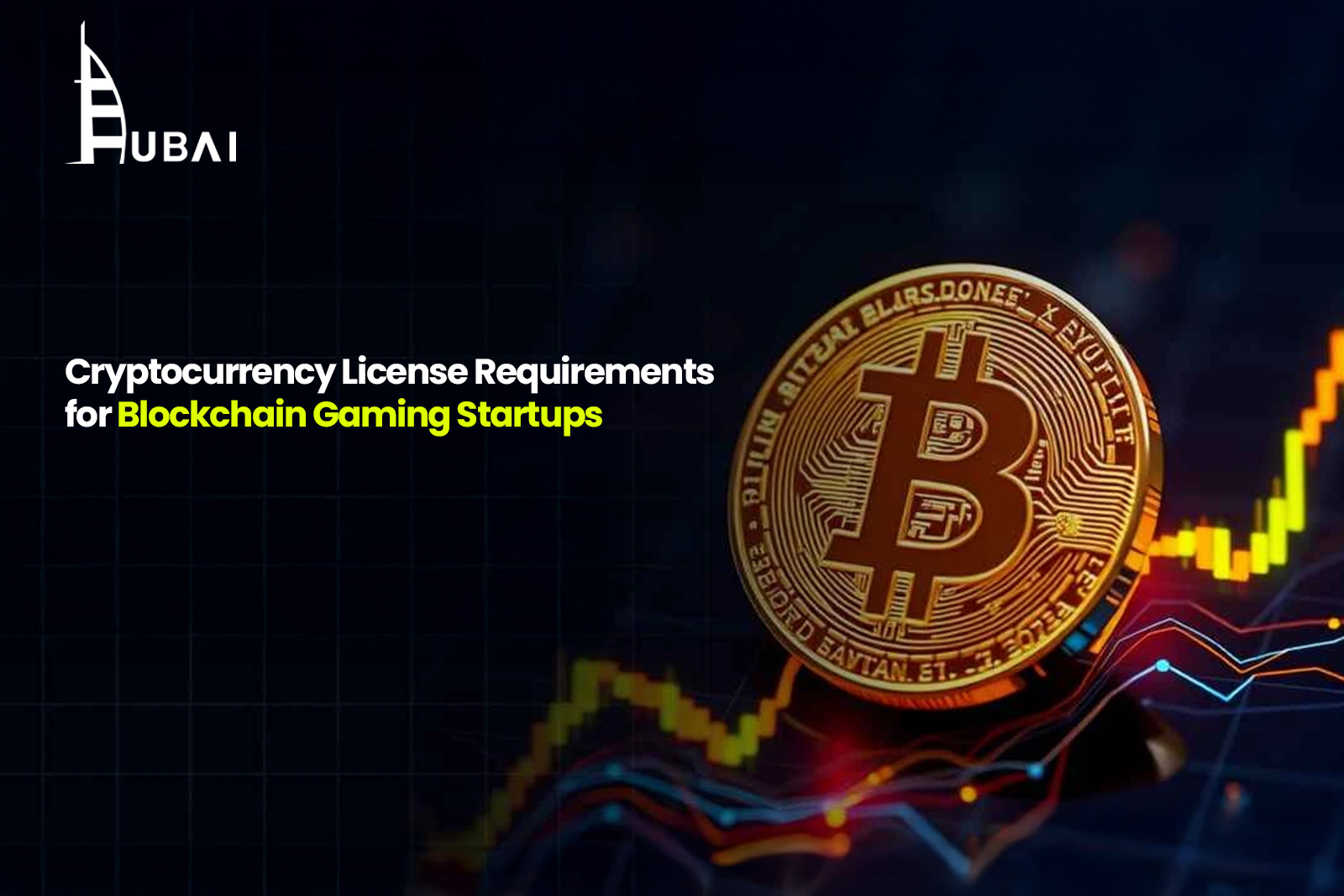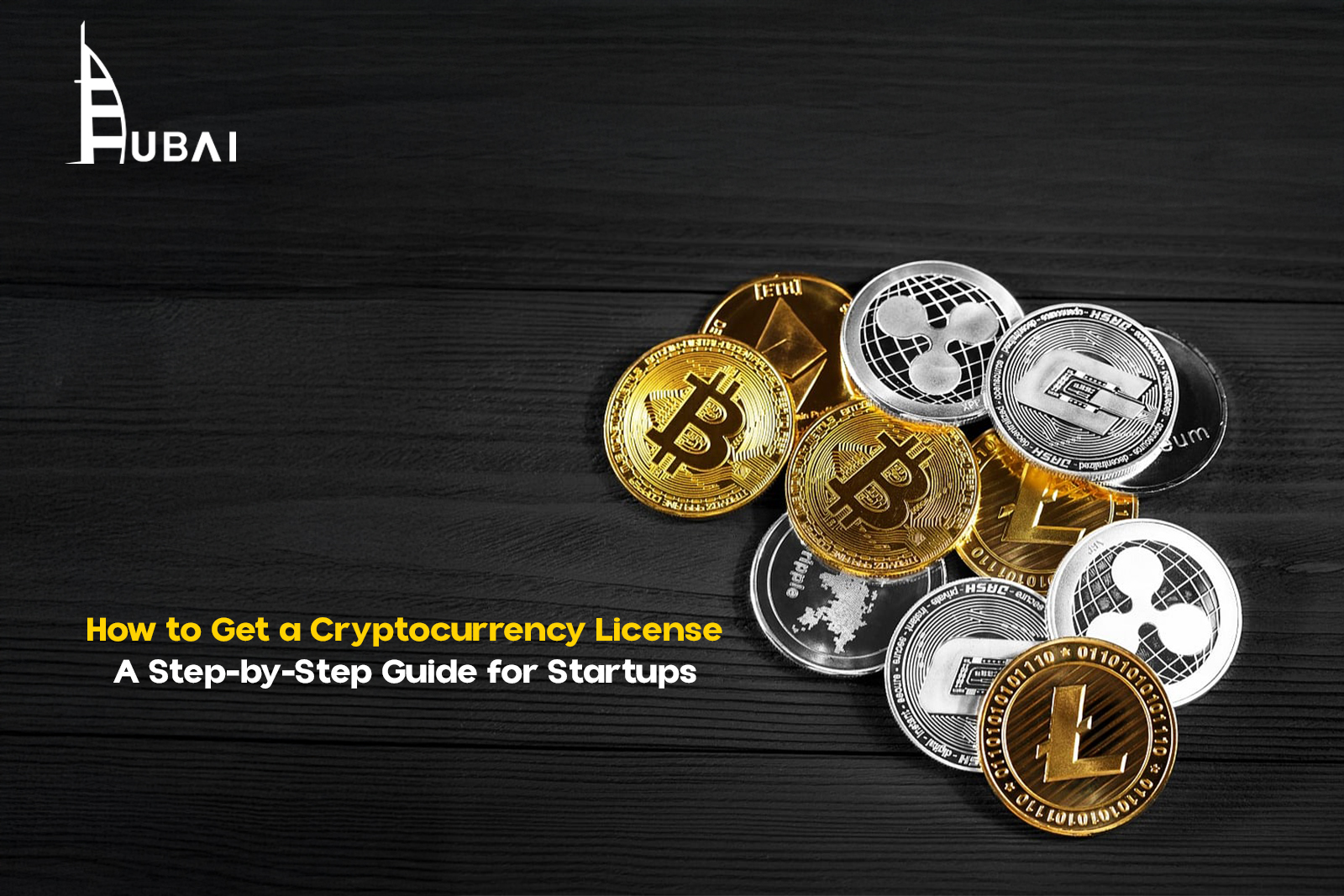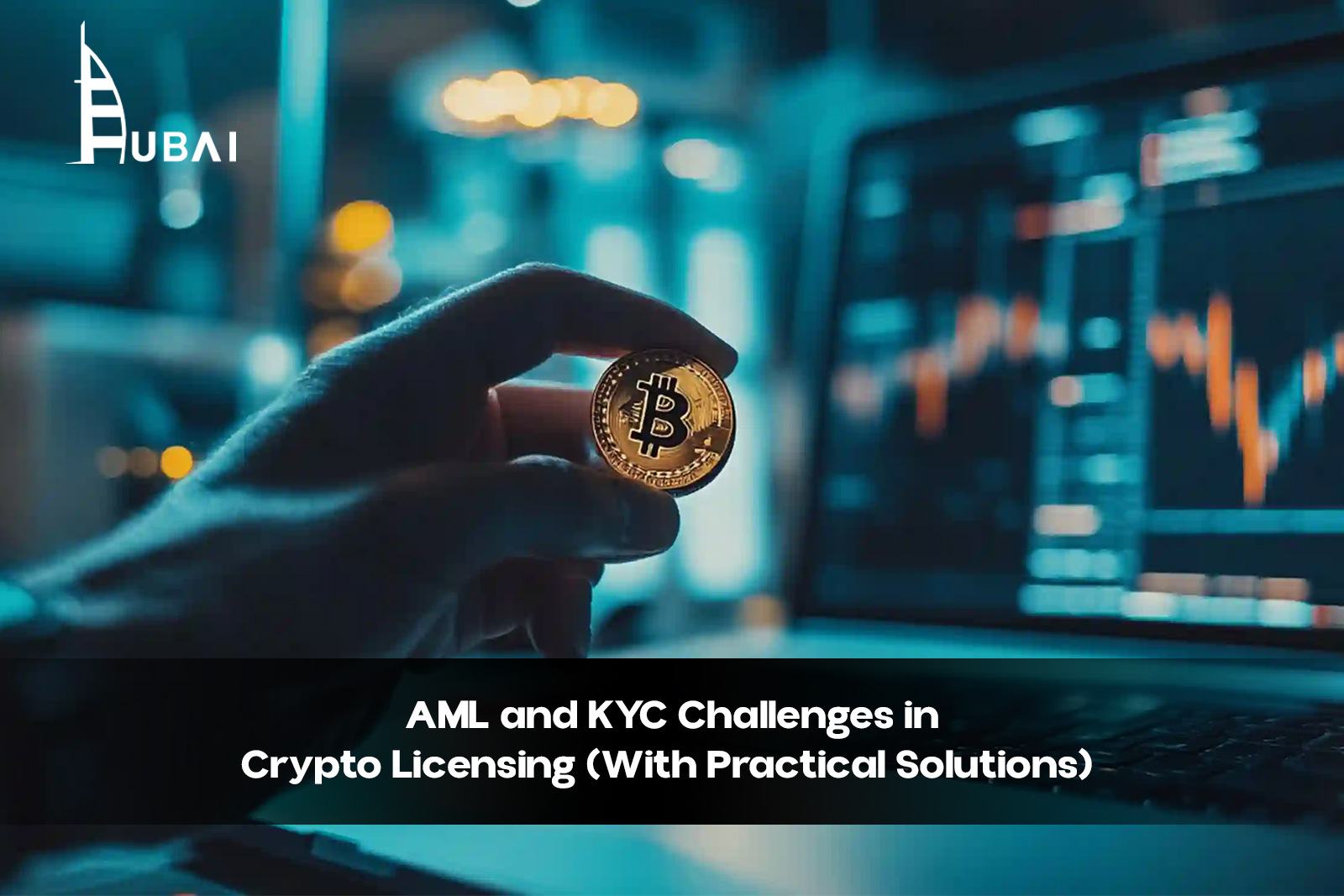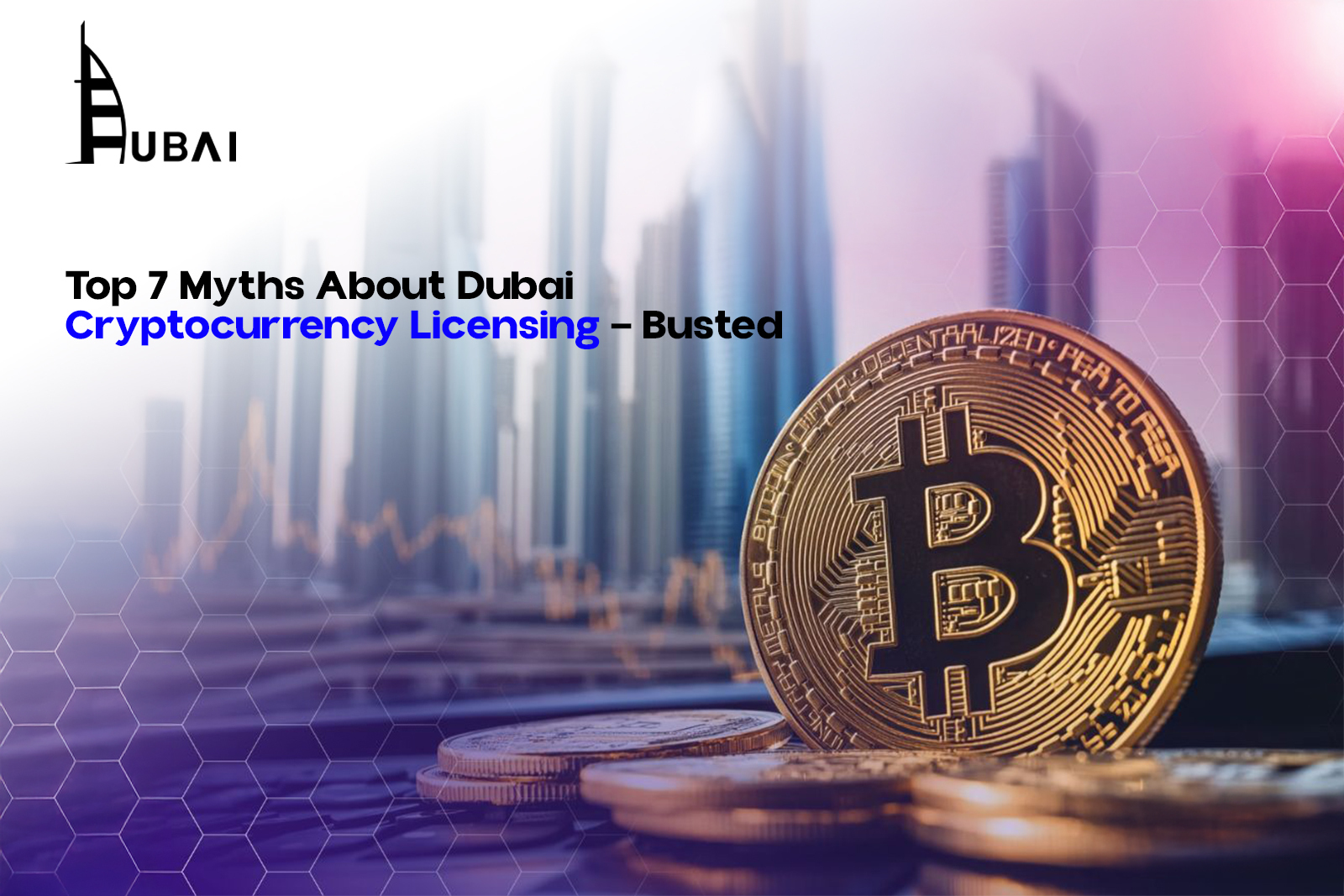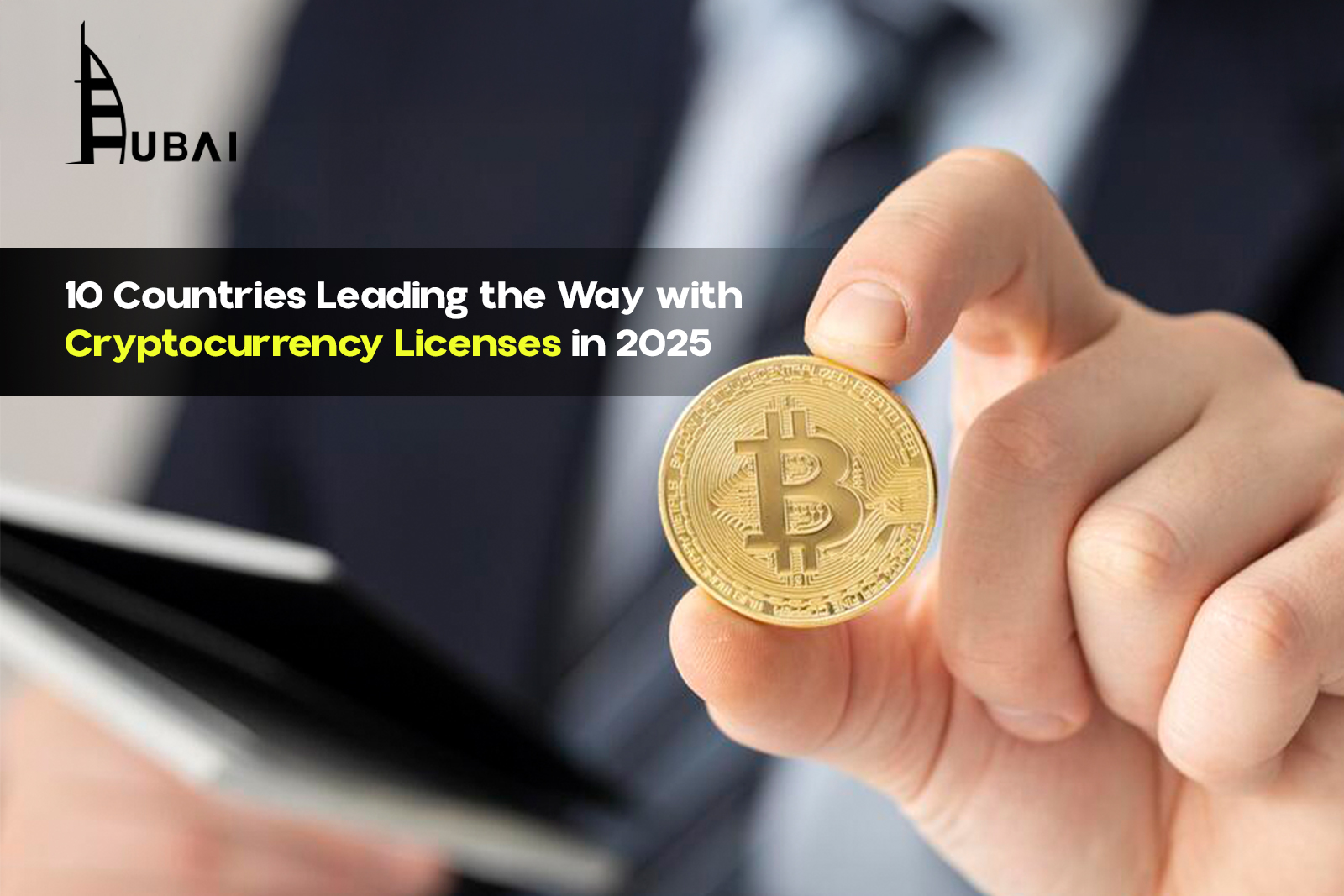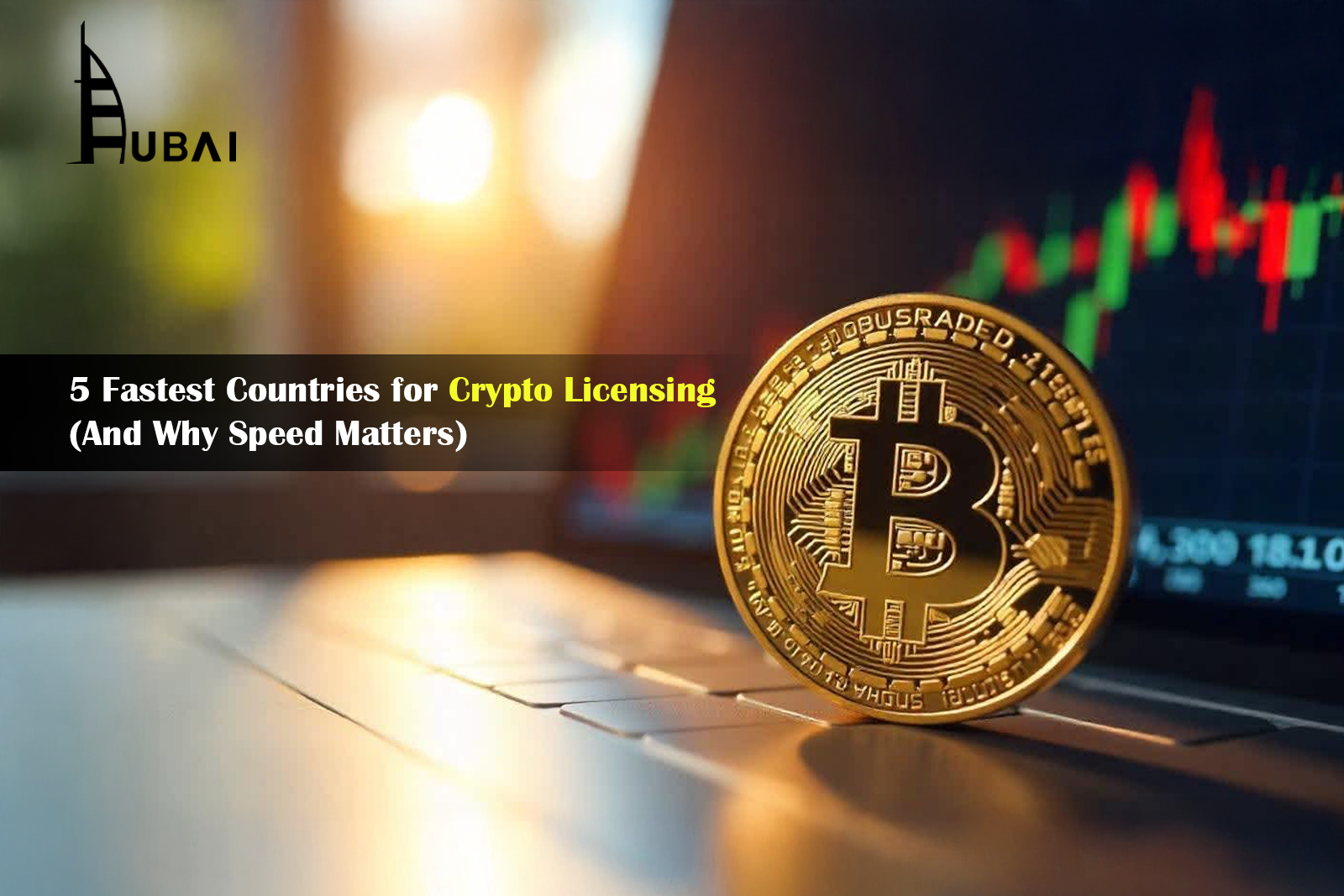Dubai has positioned itself as a global leader in fintech and blockchain innovation. From the launch of VARA (Virtual Assets Regulatory Authority) to the growing presence of international exchanges, the city is actively shaping the future of digital assets.
But with innovation comes confusion, especially when it comes to cryptocurrency licensing in Dubai. Between online forums, hearsay, and outdated sources, it’s easy to fall for myths and crypto license misconceptions that can lead to costly mistakes.
In this blog, we uncover 7 of the most common cryptocurrency licensing myths in Dubai, explain the real regulatory landscape, and give you a factual guide to crypto licensing requirements so that you can move forward with clarity.
What Is Cryptocurrency?
Cryptocurrency refers to digital assets like Bitcoin, Ethereum, and Litecoin that can be used for investment, trading, or online transactions. Unlike traditional currencies, these crypto assets operate independently of central authorities such as banks or governments.
At the core of cryptocurrency is blockchain technology. It’s a decentralised, transparent, and highly secure digital ledger. This technology allows users to buy, sell, and trade assets safely, with every transaction recorded in a tamper-proof system.
With the rising adoption and innovation of cryptocurrencies, many investors are exploring the shift from holding crypto to launching crypto-based businesses. Depending on the type of venture, profit potential can increase significantly over time. Some of the most promising crypto business models today include:
- NFT marketplaces
- Crypto payment gateways
- Crypto lending platforms
- Decentralised exchanges (DEXs)
- Token launchpads and DeFi projects
As the industry evolves, these ventures offer exciting opportunities for long-term growth and an early-mover advantage. However, myths can land you in trouble, especially when it’s Dubai.
Don’t Fall for These Crypto Licensing Myths in Dubai
In a world buzzing with blockchain hype and digital gold rush, misinformation spreads fast, especially around crypto licensing. Before you take your first step, make sure you’re not building your dream business on regulatory fiction. Let’s burst all the myths.
Myth 1: Crypto is Unregulated in Dubai
The Misconception:
“You can start a crypto business in Dubai without any license. It’s still a grey area.”
The Truth:
Dubai is not a regulatory no-man’s land for crypto. In fact, it’s one of the most actively regulated jurisdictions globally.
In 2022, Dubai launched VARA (Virtual Assets Regulatory Authority), the world’s first standalone crypto regulator, to oversee all virtual asset activities within the emirate. From exchanges to custodians, advisory services to NFT platforms, all fall under VARA’s regulatory scope.
VARA issues licenses for:
- Broker-Dealer services
- Custody of virtual assets
- Exchange operations
- Advisory and Portfolio Management
- Proprietary Trading
Dubai’s approach is not anti-crypto, it’s pro-compliance. Welcome to a world of regulated crypto licensing.
Myth 2: All Free Zones Offer Crypto Licenses
The Misconception:
“Any Dubai free zone can give you a crypto license. Just pick one with a cheap package.”
The Truth:
Only a few specific jurisdictions in Dubai are approved to handle regulated cryptocurrency licensing. These include:
| Free Zone | Crypto License Authority |
| Dubai World Trade Centre Authority (DWTCA) | VARA |
| Dubai Multi Commodities Centre (DMCC) | In partnership with VARA |
| DIFC (Dubai International Financial Centre) | Partially (limited to fintech/blockchain development) |
Not all free zones are eligible for blockchain or crypto-specific licenses, even if they allow tech or fintech activities.
If a free zone does not fall under VARA’s supervision, it cannot issue a valid virtual asset license for regulated activities, such as exchange, custodianship, or token issuance.
This is one of the most common crypto licensing myths, and one of the costliest if ignored.
Myth 3: Getting a Crypto License Is Easy and Fast
The Misconception:
“It takes a week or two to get your crypto license. It’s just like getting an e-commerce license.”
The Truth:
Crypto licensing in Dubai is not a plug-and-play process. Since it falls under financial and investor protection laws, it requires:
- Detailed business plans
- KYC/AML policy documentation
- Cybersecurity measures
- Background checks of stakeholders
- Proof of capital adequacy
The process can take anywhere between 1 and 6 months, depending on your business model, team experience, and regulatory risk assessment.
This isn’t just about registering a company, it’s about operating under regulated crypto licensing standards.
Myth 4: A Tech License Is Enough for Blockchain or Crypto Business
The Misconception:
“I’ll just register a software company and quietly run a crypto trading app on the side.”
The Truth:
A general software or tech license does not cover crypto operations, especially not activities involving:
- Token issuance
- Wallet services
- Trading
- Mining operations
- Custodianship of digital assets
Trying to operate a crypto business under a non-crypto license can lead to license revocation, financial penalties, or even blacklisting.
If your core activity involves virtual assets or blockchain-based transactions, you must get proper clearance from VARA or the Financial Services Regulatory Authority (FSRA) in Abu Dhabi.
Crypto licensing requirements explained:
- Must disclose activity type in the license
- Requires enhanced due diligence
- Often needs approvals from multiple UAE entities (e.g., DLD, SCA, MOF)
Myth 5: Only Big Exchanges Like Binance Need Regulation
The Misconception:
“VARA is only for big names like Binance, Crypto.com, and BitOasis. Small startups can skip it.”
The Truth:
Whether you’re a multi-million-dollar exchange or a two-person crypto advisory startup, the rule is the same:
If your business involves handling or advising on virtual assets, you need a VARA license.
In fact, VARA introduced licensing tiers to accommodate businesses of different sizes, including:
- Proprietary Traders
- Small-scale Portfolio Managers
- Token Launch Platforms
- Advisory and Analytics Firms
VARA wants to foster responsible innovation, not gatekeep it.
This is part of a larger shift away from “big player only” myths about crypto regulations, and it’s great news for startups.
Myth 6: Crypto Licensing in Dubai Covers the Entire UAE
The Misconception:
“Once licensed in Dubai, I can operate anywhere in the UAE.”
The Truth:
The UAE is a federal structure with semi-autonomous emirates. Licensing and regulatory control differ across emirates.
- VARA governs virtual assets in Dubai (excluding DIFC)
- FSRA (Abu Dhabi Global Market) regulates crypto in Abu Dhabi
- Other emirates may have limited frameworks or rely on the SCA (Securities and Commodities Authority)
This means if you’re licensed under VARA, you cannot automatically operate in Abu Dhabi or Sharjah unless you register separately under that emirate’s regulatory body.
Tip: Plan your operational geography before choosing where to apply for licensing.
Myth 7: Blockchain Startups Don’t Need Crypto Licensing
The Misconception:
“We’re just building blockchain apps, and we don’t deal with tokens or trading, so we’re exempt.”
The Truth:
Here’s where things get nuanced.
- If you’re building blockchain infrastructure (e.g., logistics apps, tokenless dApps), you may only need a tech or fintech license.
- However, if you’re launching a token, issuing smart contracts for assets, or engaging in any form of digital currency activity, it becomes a regulated crypto activity.
In Short, not all blockchain licensing myths are wrong, but assuming you’re exempt without review is risky.
When in doubt, consult with a VARA-registered legal advisor before launching.
Final Thoughts: Busting the Crypto Licensing Myths for Good
Dubai isn’t a lawless crypto playground. It’s a regulated sandbox built for innovation. But with regulation comes responsibility. If you’re planning to enter the crypto or blockchain space in Dubai, don’t fall for outdated or oversimplified advice.
Always remember:
- Regulated crypto licensing protects you and your users.
- VARA is your go-to for Dubai-based crypto licensing.
- Documentation, compliance, and clarity are key.
Frequently Asked Questions (FAQs)
Q1. How to get a crypto licence in Dubai?
To get a crypto licence in Dubai, follow the steps below:
- Choose a VARA-regulated zone (like DWTC or DMCC).
- Prepare your business plan, KYC policy, and cyber protocols.
- Apply via the regulator with the required documents.
- Undergo due diligence, background checks, and capital verification.
- Pay licensing and regulatory fees.
Q2. What types of crypto licenses exist in Dubai?
Different types of crypto licences exist in Dubai, like:
- Advisory
- Broker-Dealer
- Custody
- Exchange
- Lending & Borrowing
- Proprietary Trading
- Portfolio Management
Q3. Is a license required for NFT or token launch platforms?
Yes, especially if the tokens are tradable or represent digital/real-world value. VARA or SCA must approve these activities.
Q4. Can freelancers or individual consultants apply for a crypto license?
Yes, but only under specific Free Zone freelance permits, and even then, only for non-financial cryptocurrency services, such as blockchain development or education.





